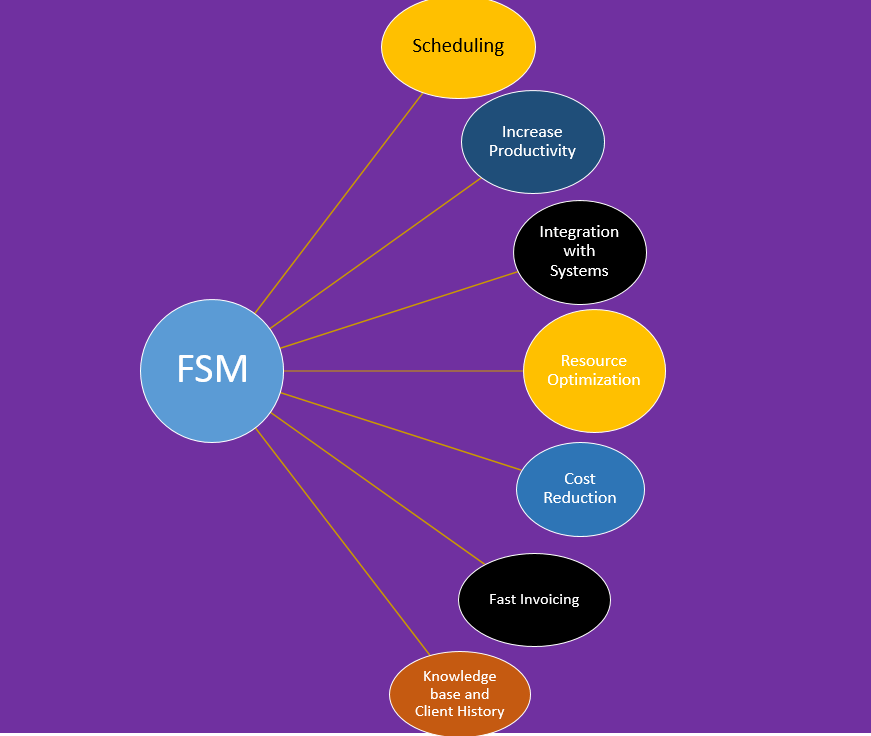Field Service Management (FSM) Revolutionizing Operations in India: Embracing New Technologies for Enhanced Customer Satisfaction
Introduction
Field Service Management (FSM) systems have emerged as transformative solutions within the Indian business landscape, revolutionizing how companies manage their field operations. In an era defined by digitalization and technological advancements, FSM in India has evolved to encompass cutting-edge technologies, streamlined operations, enhanced customer satisfaction, advanced analytics, seamless system integration, and comprehensive reporting mechanisms.
Embracing New Technologies in FSM
The FSM landscape in India has witnessed a significant technological evolution. Modern FSM solutions leverage AI-driven algorithms, machine learning, IoT (Internet of Things), and automation to optimize field operations. These technologies empower businesses to predict equipment failures, proactively schedule maintenance, and automate routine tasks, thereby increasing operational efficiency and reducing downtime.
Streamlining Operations and Digitization
Operationally, FSM systems have digitized and streamlined the entire lifecycle of field service operations. From scheduling and dispatching technicians to providing real-time updates and remote diagnostics, these systems digitize workflows, ensuring timely and efficient service delivery. This digital transformation has eliminated paperwork, enhanced accuracy, and improved overall operational agility.
Elevating Customer Satisfaction through FSM
Customer satisfaction is the cornerstone of successful businesses. FSM solutions in India have placed a strong emphasis on enhancing customer experiences. Real-time communication, transparent service tracking, and personalized interactions through mobile apps or portals have significantly improved customer satisfaction levels. Prompt response times and proactive service have become benchmarks of FSM-driven enterprises.
Analytics Driving Informed Decision-Making
Analytics within FSM systems have empowered Indian businesses to make data-driven decisions. By analyzing field data, performance metrics, and customer feedback, companies gain valuable insights. Predictive analytics enables proactive maintenance, resource optimization, and service enhancements, thereby ensuring higher service quality and customer satisfaction.
Integration with Existing Systems
Seamless integration with existing enterprise systems is critical for effective FSM implementation. Modern FSM solutions in India offer robust integration capabilities, enabling synchronization with CRM (Customer Relationship Management), ERP (Enterprise Resource Planning), inventory management, and other core systems. This integration streamlines work processes, eliminates data redundancies, and improves operational efficiency.
Comprehensive Reporting for Performance Evaluation
Reporting mechanisms within FSM systems provide comprehensive insights into field operations. These reports offer visibility into key performance indicators (KPIs), technician performance, service metrics, and operational efficiencies. These insights facilitate continuous improvement strategies, allowing businesses to fine-tune operations for better outcomes.
The Future Outlook: Evolving FSM Landscape in India
Looking ahead, the FSM landscape in India will continue to evolve. Embracing emerging technologies like augmented reality (AR), further advancements in AI, and deeper integration with IoT will shape the future of FSM. This evolution will drive even greater operational efficiency, predictive maintenance, and unparalleled customer experiences.
Conclusion
FSM systems have emerged as indispensable tools for businesses operating in India, transforming operations, enhancing customer satisfaction, and paving the way for data-driven decision-making. Embracing these technologies is not merely a choice but a strategic imperative for enterprises aiming to thrive in an increasingly competitive and digitally-driven marketplace.


